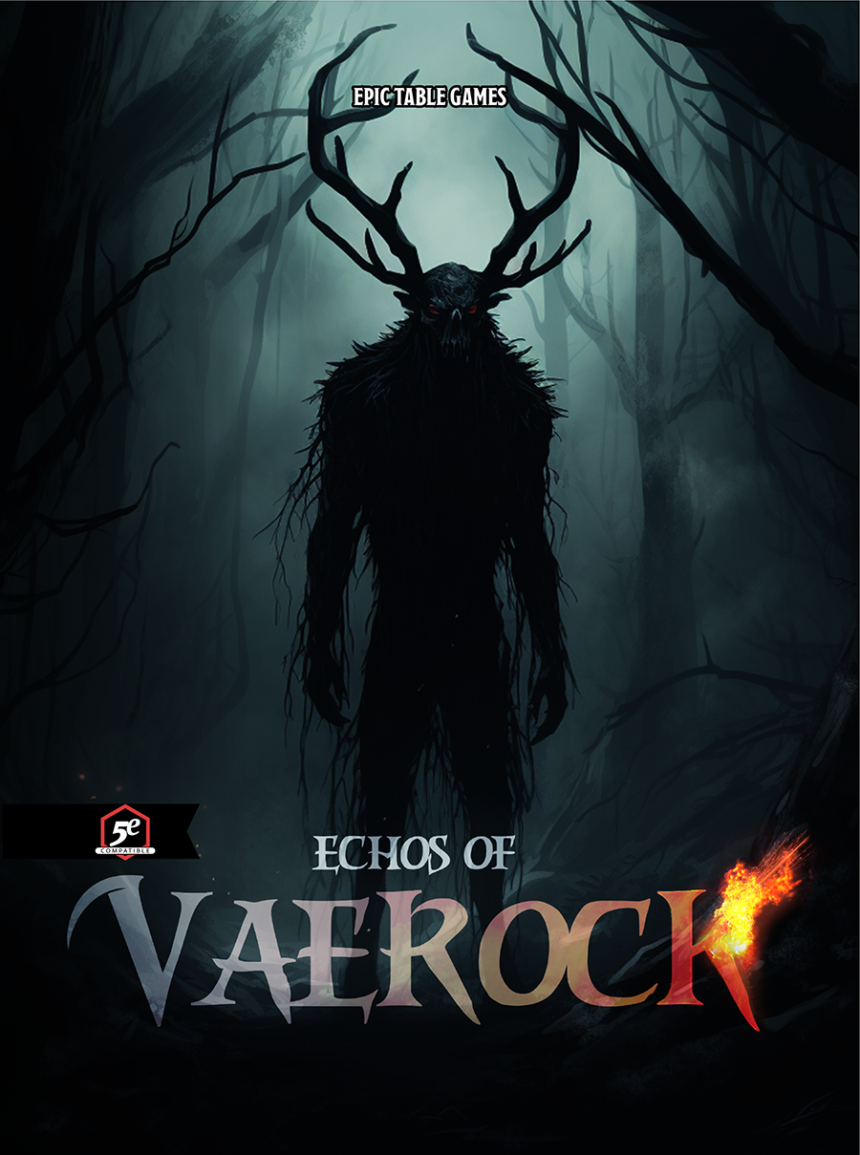Hi there, everyone, and welcome back to your seat at the Epic Table! The blog has been on a bit of an unofficial hiatus while I recover from an illness (I’m on track, don’t worry). Something happened in our community last week, however, and it’s sufficiently important that I wanted to come out of hibernation and address it.
The topic is a tricky one for me. It involves gender transition, deadnaming, death, and legacy. These would be tough for anyone, I think, but—without getting too far into personal matters—they are also particularly meaningful to me. As such, what I am going to do is this: first, I am going to lay out all of the facts as I understand them. After that, I’ll explain how I feel on the matters at hand.
As you might expect, this will probably be a longer post than normal.
A Rough Summary of Events
On July 23rd, 2010, Justin Alexander published a blog post called “Jaquaying the Dungeon.” (archive link)
To say that this post has had a profound impact on tabletop RPGs is a massive understatement. The post burned through the D&D and OSR communities, taking them by storm. Massive discussions about the nonlinear designs espoused in the article were had. This wasn’t the only thing that put Alexander on the map (the three-clue rule also being important), but the words “Jason Alexander” and “Jaquaying” were inexorably linked from this point forwards.
The term “Jaquaying” was named after Jennell Jaquays, an incredibly influential dungeon creator whose popular modules were mostly done in the nonlinear style Alexander was describing. Jaquays, however, was a trans woman and did not come out publicly until 2011 or 2012 (depending on what you count as “public”). As such, the article referred to her by her deadname. It is also worth noting that the term chosen, for whatever reason, was “Jaquaying” and not “Jaquaysing.”
The article continued to refer to her by her deadname for many years. On October 10th, 2016, Alexander published a second post titled “Thought of the Day: Deadnames.” (archive link) In it, he laid out his reasons for not changing the text of the article to remove Jaquays’ deadname. Among other reasons, this included the perceived difficulty of changing all references sitewide.
About a year and a half later, on February 21st, 2018, Jaquays posted a comment on “Thought of the Day: Deadnames” asking that her name be corrected. In this comment, she also indicated her desire that “Jaquaying” be changed to “Jaquaysing.” Alexander responded by removing her deadname from the relevant posts, but not correcting the spelling of “Jaquaying.” The entire post, along with the comments, was deleted sometime after early 2021.
On November 1st, 2023, Alexander posted “A Historical Note on Xandering.” (archive link) In it, he announced that his site had changed the word “Jaquaying” to “Xandering” in all instances. A new link was created for the original post, which was renamed “Xandering the Dungeon.” (archive link) Alexander gave several reasons for this, but the crux of his claim was as follows:
I spoke with Jennell earlier this year. We both agreed that the name should be changed, and I said it would be a large project to do it, but I’d make sure it happened by the end of the year.
The final factor here is that I had also been working on So You Want to Be a Game Master, a book in which I discussed non-linear dungeon design that had originally used the term “jaquaying.” So I contacted the publisher and said, “We need to make sure we change this term.”…
…After a bunch of back-and-forth, we finally settled on the term “xandering.” And so, from this point forward, my dungeons will be thoroughly xandered.
While I do not have concrete evidence that this is what was discussed, it is likely that the legal issue at stake was unlawful use of name or likeness. (Important note: I am not a lawyer, and this section is pure speculation on my part.) The reason this would have arisen at that moment in time is that the test for unlawful use is in three parts: 1) the use of a protected attribute, such as a name, 2) for exploitative purpose, such as a commercial one, 3) without consent. With the imminent publishing of So You Want To Be A Game Master?, the use had become commercial and therefore all three parts were satisfied. While Jaquays (or her representatives) probably would not have sued for unlawful use, and probably would not have prevailed even had they done so, they could have. For some publishers, that is sufficient reason for a change.
Unfortunately, at this time Jaquays was very ill. She did not recover, and passed away earlier this month.
On Monday (the 22nd), the blog DIY & dragons made a post titled “Xandering is Slandering.” (archive link) The post alleges malicious intent on the part of Alexander in changing the term to remove the reference to Jaquays. Alexander responded both by editing “A Historical Note on Xandering” to add explanatory notes and by posting two Twitter threads. The first (reader archive link) denied the DIY & dragons allegations and accused Anne (the author) of “trying to get cheap clicks by appealing to outrage culture over this.” The second (reader archive link) discussed the reasons for the deletion of “Thought of the Day: Deadnames.”
Sometime between Monday and now, Ava Islam (of Errant) joined Alexander’s private Discord server and questioned him regarding these matters. She has uploaded screenshots of the discussion to Imgur. (link, archive postimage link [Archive.org does not play well with Imgur])
Analysis
There are two issues at stake here: the Deadnames post and the Xandering rename. And while I don’t think everything Anne has alleged is totally accurate, Justin Alexander’s response makes my skin crawl.
“Thought of the Day: Deadnames” was an absolutely disgusting piece of writing, and his comments on the matter in the second Twitter thread simply double down:
Core claims from the article and the discussion at the time it was written:
…2. However, the ethics of re-editing material written before a name change is complicated….
…For better or for worse, I stand by those claims….I’m not sure that’s necessarily a universally right answer, but I certainly think and feel that it was the right answer here.
The ethics of re-editing material written before a name change are not complicated. Sure, it would have been work to change the website. Sometimes, being a good person isn’t easy! A change being difficult to make doesn’t make it any less morally right! And the idea that you should continue using a trans person’s deadname until they personally contact you and request you not do so is completely revolting. On this, Alexander is totally in the wrong and has been since 2016.
The name change is a little bit of a trickier issue. Anne alleges that, basically, this is all a deliberate effort to erase Jaquays’ contributions. Is that supported?
There’s a unifying theme in what Alexander has done here. It could be the case that this is all unintentional; that his motives were pure, that he never meant to mislead anyone. It could be the case that he changed the name to “Xandering” purely because of a legal issue because Jaquays or her successors could have made a case. If this is a court of public opinion, to me there’s a sliver of reasonable doubt.
But if I take a long, hard look in the mirror? It feels to me like Alexander is banking on that reasonable doubt.
Especially when it comes to the first Twitter thread, the edit to “A Historical Note on Xandering,” and the Discord conversations, Alexander’s writing on the matter feels like it’s taking two tacks: 1) decrying anyone criticizing him as “an elaborate conspiracy” out for “clicks,” and 2) avoiding straightforward denials of a lot of the accusations in order to not outright lie. Out of everything, I think the Discord conversation is most telling: Alexander simply will not say that he asked for Jaquays’ blessing on the name “Xandering.” Based on the amount of dancing he does, it’s my guess that he never did. But never saying that means he can still hint that it’s possible that he did, and that it’s possible that she gave it.
So then he can write things like “we decided” and let readers leap to conclusions, like I did.
My review of So You Want To Be A Game Master? included the following line:
The Alexandrian invented terms like “jaquaying,” later renamed to “xandering” at the request of the original namesake, and the three-clue rule for mysteries.
Why did it say that? Because I thought, based on the text of the blog, that that was what had happened. And that’s ultimately the point: I think that Justin Alexander intentionally misled people through intentionally vague wording. I don’t know if his intent was to deliberately erase Jennell Jaquays; for example, I don’t think he would have tried to eliminate her contribution if it didn’t also give his ego and brand a boost at the same time. I find it much more likely that he cared more about building his brand up at the time of the book launch and didn’t give Jaquays much of a thought at all.
But the fact is that he did eliminate her from his book and try to scrub her name from the technique originally named after her. Jaquays’ name appears once in the entire book text, in the acknowledgements. To be fair, it’s the same way he treats D. Vincent Baker, who invented progress clocks (called countdown clocks originally); if you didn’t read the acknowledgements, you wouldn’t know Alexander didn’t invent them. To be unfair, that’s actually worse.
And regardless, he’s still absolutely reprehensible for the Deadnames bit too. So while I won’t go quite as far as Anne does in condemning Justin Alexander, I still feel he has quite a lot to answer for here.
Long story short: I’m pretty sure I’m gonna be calling this process Jaquaysing from now on.
The contents of this post are © 2024 H. Tucker Cobey. All rights reserved.





